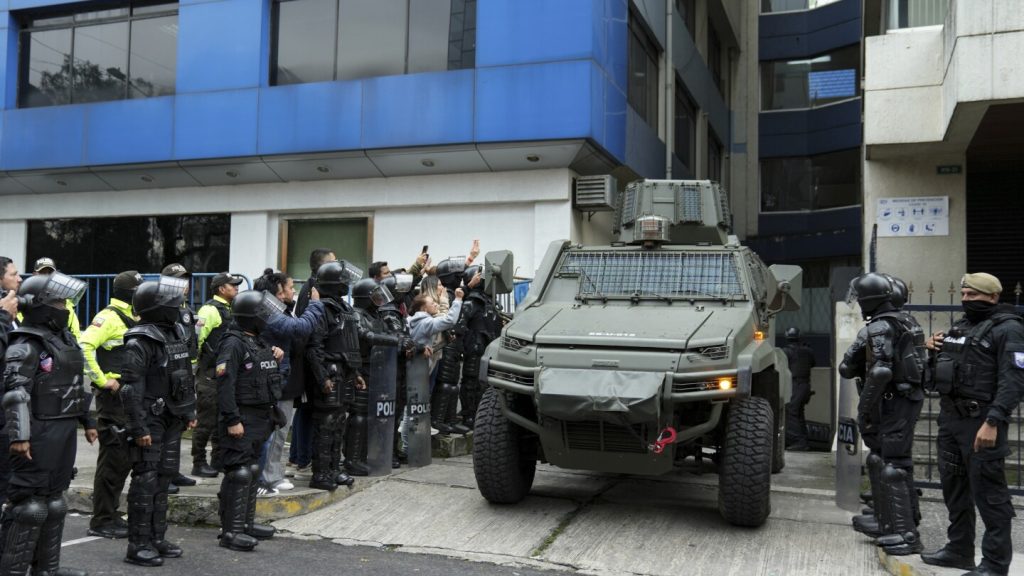Mexico broke off diplomatic relations with Ecuador after police forcibly entered the Mexican Embassy in Quito to arrest former Ecuadorian Vice President Jorge Glas, who was residing there under political asylum. President Andrés Manuel López Obrador announced the decision, and Mexico’s foreign relations secretary stated that they will challenge the move at the World Court in The Hague. The raid on the embassy shocked regional leaders and diplomats, with the head of the Mexican consular section in Quito expressing concern for Glas’s safety.
Glas was taken from the attorney general’s office in Quito to a maximum-security prison in Guayaquil. His attorney reported that officers forcibly entered his room, leading to a physical altercation when they tried to arrest him. Glas was convicted on bribery and corruption charges in other cases and was under investigation for irregularities during reconstruction efforts after a 2016 earthquake. Ecuador’s decision to enter the embassy was made by President Daniel Noboa due to Glas’s perceived flight risk and after exhausting diplomatic dialogues with Mexico.
Mexico had granted Glas asylum just before the raid, sparking controversy. Ecuador’s Foreign Minister stated that it is not legal to grant asylum to people convicted of common crimes by competent courts. The breach of the embassy violated the Vienna Convention on Diplomatic Relations, which establishes diplomatic premises as foreign soil that should be inviolable. Previously, individuals seeking asylum have been housed in embassies, like Julian Assange in Ecuador’s embassy in London for seven years.
The international community condemned the breach of the Vienna Convention and called for a resolution between Ecuador and Mexico. The U.S. State Department criticized the violation, and the Organization of American States reminded members of their obligations under international law. Mexico announced plans to take the case to the International Court of Justice and recalled its diplomats. The incident highlighted tensions between the two countries and raised concerns about Ecuador’s president facing reelection next year.
President Noboa’s actions, such as sending police to the embassy, raised questions about his commitment to the rule of law and human rights, especially amidst efforts to combat drug trafficking-related crime. Observers noted parallels with El Salvador President Nayib Bukele’s tough-on-crime policies and expressed hope that Noboa would not adopt similar strategies. Glas’s attorney raised concerns about his safety while in custody in Ecuador, citing the country’s history of violence in detention facilities. The situation underscored the fragile political and legal dynamics in the region, with potentially far-reaching implications.


